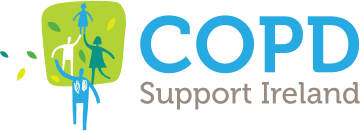Sometimes with COPD your usual symptoms might become worse or you may develop new symptoms. This can happen quite quickly or over the course of a few days. These episodes are called exacerbations or flare ups and are usually triggered by inflammation in the lungs, infection or irritants including: chest infection, flu, air pollution, smoke or seasonal allergens.
Often there is a pattern to how a flare up starts. You need to recognise what that looks and feels like for you, it might be that:
- There is an increase in the amount of phlegm you normally cough up.
- The colour of your phlegm is changing colour.
- You can’t walk as far as you did the day before. For example, yesterday you could walk from your bed to the bathroom but today you need to rest half way.
- You feel you are getting a cold or flu.
- You can’t lie down or sleep very well.
During a flare up:
- You may feel more breathless or feel you are not getting enough air in.
- Your cough is getting worse or you have developed a new cough – it can be dry or bringing up more phlegm.
- You might cough up more phlegm or the colour of your usual phlegm might change or become stickier.
- You may become wheezy or hear different noises when you are breathing.
- You might find it more difficult to sleep because you are breathless or coughing more.
- You might feel sleepier during the day.
- Your ankles may become swollen or more swollen.
- You might develop a temperature.
More severe symptoms of flare ups include:
- Chest pain.
- Blue lips or finger nails.
- Feeling confused or disorientated.
- Too breathless to talk.
What to do after a flare up:
- It can take a while to fully recover following an exacerbation or flare up and this can vary for each individual.
- For some people this recovery can be slow or can take up to six weeks.
- It is important that you continue to take all your medication as prescribed and follow your COPD Self-Management Plan
What can I do?
- Get your Flu vaccine yearly and the Pneumonia vaccine as well as any other vaccines recommended by your healthcare professional. (Section 6.8).
- Stop smoking if you are a smoker and make your house a smoke free zone (Section 4).
- Take all your medication including your inhalers as prescribed and check your inhaler technique regularly with your healthcare professional.
- Clear your phlegm as advised by your healthcare professional (Section 6.4).
- Avoid crowded places during the cold and flu season.
- Avoid exposure to lung irritants such as smoke or sprays, aerosols and fumes.
- Wash your hands regularly and use hand sanitisers when you can’t wash them.
- Drink enough water to stay hydrated and keep your phlegm from becoming thick or sticky.
- Take regular exercise, eat well and get a good night’s sleep.
- Attend your clinic appointments.
